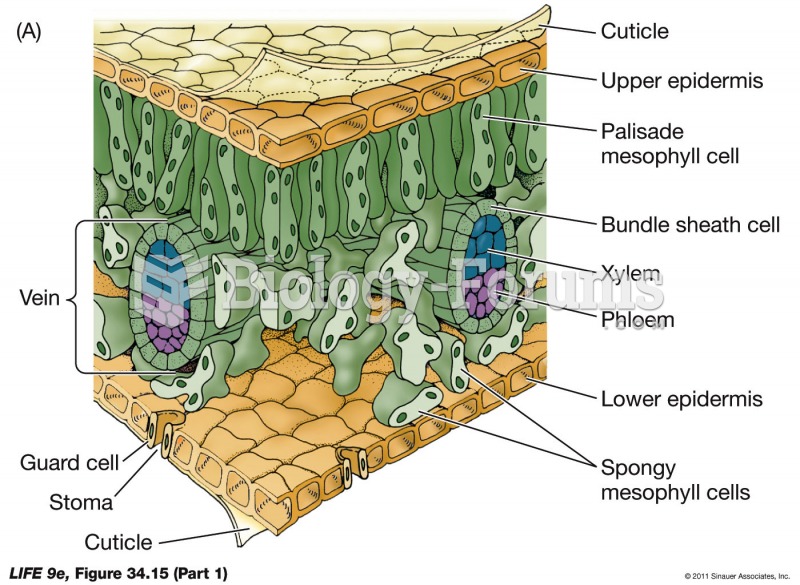|
|
|
For pediatric patients, intravenous fluids are the most commonly cited products involved in medication errors that are reported to the USP.
In most climates, 8 to 10 glasses of water per day is recommended for adults. The best indicator for adequate fluid intake is frequent, clear urination.
The lipid bilayer is made of phospholipids. They are arranged in a double layer because one of their ends is attracted to water while the other is repelled by water.
More than nineteen million Americans carry the factor V gene that causes blood clots, pulmonary embolism, and heart disease.
Elderly adults are at greatest risk of stroke and myocardial infarction and have the most to gain from prophylaxis. Patients ages 60 to 80 years with blood pressures above 160/90 mm Hg should benefit from antihypertensive treatment.
 Protraction and Retraction Protraction–Moving a body part forward. Retraction–Moving a body part bac
Protraction and Retraction Protraction–Moving a body part forward. Retraction–Moving a body part bac
 Shen Zhou, Poet on a Mountaintop, leaf from an album of landscapes, painting mounted as part of a ...
Shen Zhou, Poet on a Mountaintop, leaf from an album of landscapes, painting mounted as part of a ...





